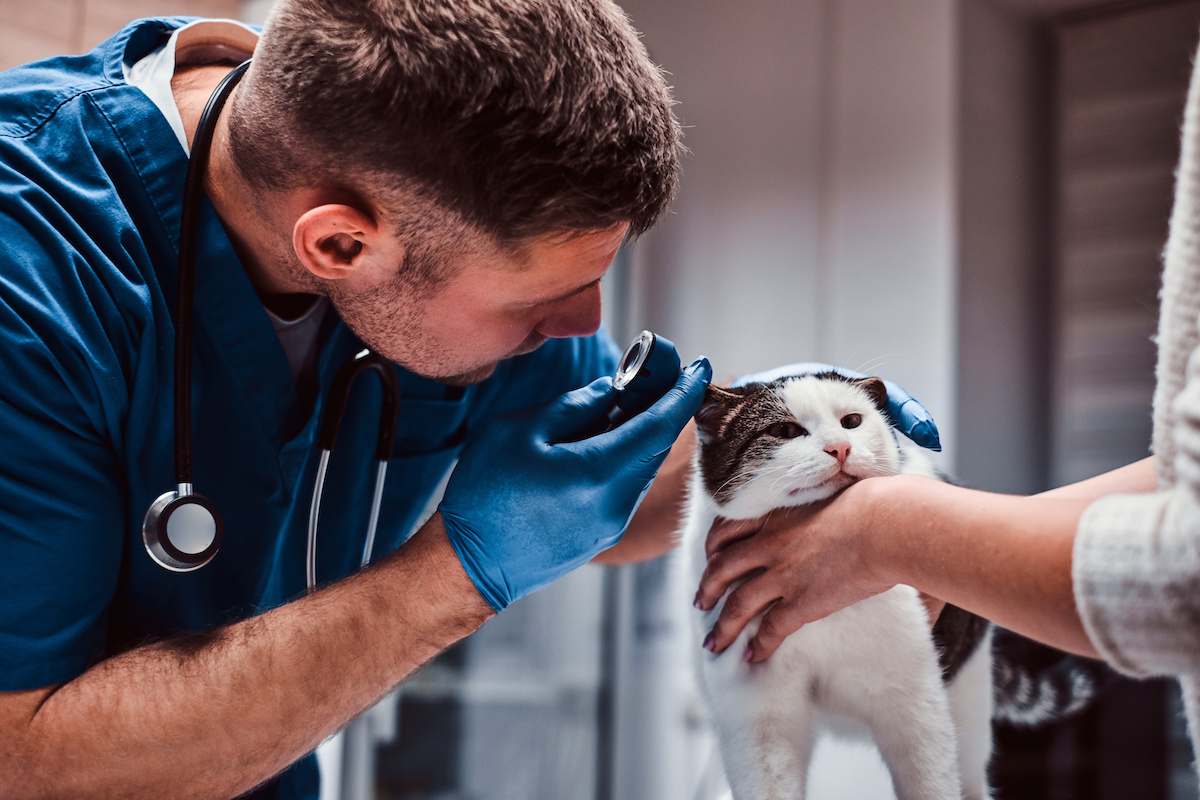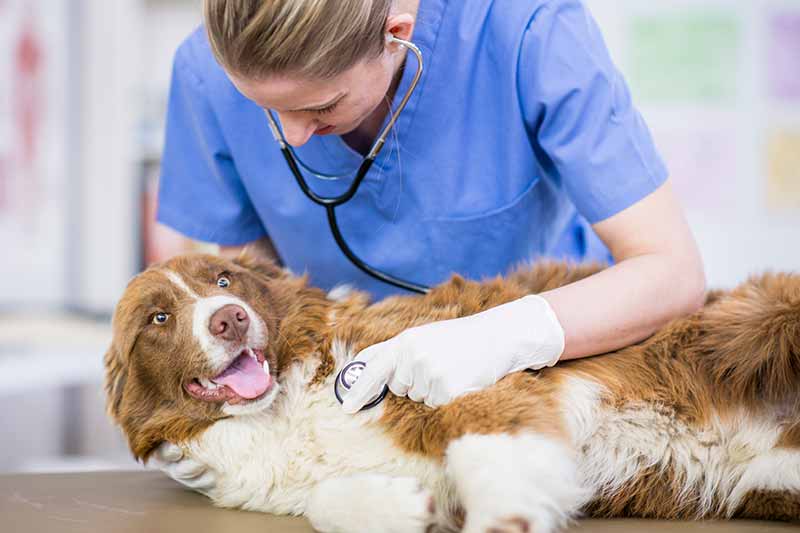Just How Emergency Vet Providers Can Provide Fast and Efficient Treatment for Pets
Just How Emergency Vet Providers Can Provide Fast and Efficient Treatment for Pets
Blog Article
Inoculation Guidelines From Your Trusted Vet
Vaccination standards provided by your relied on veterinarian play a crucial function in guarding your animal's health and well-being. Furthermore, resolving usual mistaken beliefs surrounding vaccinations can even more enhance pet owners' confidence in these preventive steps.

Value of Inoculations
Inoculations play an essential duty in guarding pet dogs versus a variety of avoidable illness. By stimulating the body immune system to identify and combat details virus, vaccines substantially minimize the occurrence of contagious conditions that can affect a pet dog's wellness and longevity. Not only do inoculations safeguard specific animals, however they also add to herd resistance, thus decreasing the general prevalence of illness in the pet dog populace.
Prompt vaccinations aid to alleviate the spread of conditions such as rabies, parvovirus, and distemper, which can have serious repercussions for both humans and pets. In addition, inoculations are often a need for boarding centers, brushing solutions, and canine parks, making them necessary for those who want to mingle their family pets.

Core Vaccinations for Animals
While the specific inoculation needs of family pets can differ based upon specific elements, core vaccines are universally advised to safeguard versus one of the most major and common diseases (Pet Vaccinations). Core injections are those considered necessary for all pets, despite their lifestyle or geographical location, as they secure versus extremely contagious and potentially fatal health problems
For dogs, the core vaccines consist of those for canine distemper, parvovirus, adenovirus (hepatitis), and rabies. Canine distemper is a viral disease that influences the respiratory, gastrointestinal, and nerves. Parvovirus is known for triggering serious stomach health problem, especially in young puppies. Adenovirus can lead to liver disease, while rabies is a zoonotic disease that positions a threat to both humans and pet dogs.
In cats, core vaccines encompass feline panleukopenia, feline calicivirus, feline herpesvirus (rhinotracheitis), and rabies. Feline panleukopenia is an extremely contagious viral disease that affects the immune system and intestines. Calicivirus and herpesvirus are significant factors to upper respiratory system infections in felines, while rabies stays a crucial concern for public health and wellness.
Seek advice from your veterinarian to ensure your animals receive their core inoculations on time.
Non-Core Vaccines Explained
Non-core vaccines are tailored to resolve certain risks linked with a family pet's direct exposure, lifestyle, and setting to specific diseases. Unlike core injections, which are generally suggested for all family pets, non-core vaccinations are considered based on private circumstances. These injections are especially crucial for animals that may come across one-of-a-kind microorganisms due to their geographical location, travel practices, or activities.
Examples of non-core vaccinations include those for Bordetella bronchiseptica, which is connected to kennel cough, and Lyme disease, brought on by ticks. Pets that often interact with other animals, such as those in boarding centers, canine parks, or brushing atmospheres, might take advantage of Bordetella vaccination. If you live in an area where Lyme illness is common, vaccinating against this illness can be a prudent choice for outdoor-loving explanation dogs.
Various other non-core vaccinations may consist of those for leptospirosis, canine flu, and feline leukemia, depending on the particular danger aspects existing. It is important to have a complete conversation with your veterinarian regarding your family pet's way of living and the prospective demand for these injections, guaranteeing a customized vaccination technique that ideal protects your fuzzy pal.
Vaccination Arrange Introduction

As pet dogs grow, it is necessary to comply with the suggested booster vaccinations. Emergency Vet. For adult animals, core vaccinations are usually provided every one to 3 years, depending upon Our site the specific injection and regional laws. Non-core injections may be recommended based upon lifestyle factors and regional illness occurrence, necessitating a customized approach
Routine vet exams are crucial for updating vaccination schedules. Your vet can supply advice on the most ideal booster shots for your family pet, considering age, health status, and environmental threats. By remaining proactive and educated, family pet owners can ensure their fuzzy companions get effective and prompt vaccinations, consequently guarding their health and wellness and well-being throughout their lives.
Usual Misconceptions Regarding Injections
Mistaken beliefs concerning animal vaccinations can lead to complication and unwillingness among pet proprietors pertaining to the booster shot process. One common misconception is that vaccinations are unneeded for interior animals. While it holds true that interior pets deal with lower risks, they are not entirely unsusceptible to conditions, as microorganisms can be presented through various ways, consisting of human clothing and other family pets.
One more false impression is that vaccines can create the conditions they intend to avoid. In truth, many injections contain inactivated or attenuated pathogens, which can not trigger disease in healthy pets. Some pet proprietors additionally believe that their family pets should not be vaccinated if they are already healthy; however, inoculations are an aggressive action that assists prevent the beginning of ailment.
Furthermore, many pet owners fear that injections will certainly lead to lasting find here wellness problems. The benefits of vaccination-- shielding pet dogs from potentially dangerous illness-- much surpass the risks.
Conclusion
In summary, adherence to inoculation guidelines is essential for making sure the health and longevity of animals. Core vaccinations give important protection versus major illness, while non-core injections attend to particular dangers based on individual lifestyles. Developing a comprehensive inoculation schedule, along with regular vet examinations, assists in optimum health and wellness management. Dispelling common myths bordering inoculations better reinforces the relevance of informed decision-making in pet care. Inevitably, an aggressive technique to inoculations is vital for keeping animal well-being.
Not just do vaccinations protect private animals, however they also contribute to herd resistance, consequently minimizing the total prevalence of conditions in the family pet population.
False impressions about pet dog inoculations can lead to complication and hesitation among pet dog proprietors regarding the booster shot process. While it's real that indoor animals encounter lower dangers, they are not completely immune to illness, as microorganisms can be introduced through numerous methods, consisting of human clothes and various other pets.
Some animal owners also believe that their pet dogs must not be vaccinated if they are already healthy and balanced; nonetheless, vaccinations are a positive procedure that helps avoid the beginning of disease.
The advantages of vaccination-- shielding pet dogs from potentially life-threatening conditions-- much surpass the risks.
Report this page